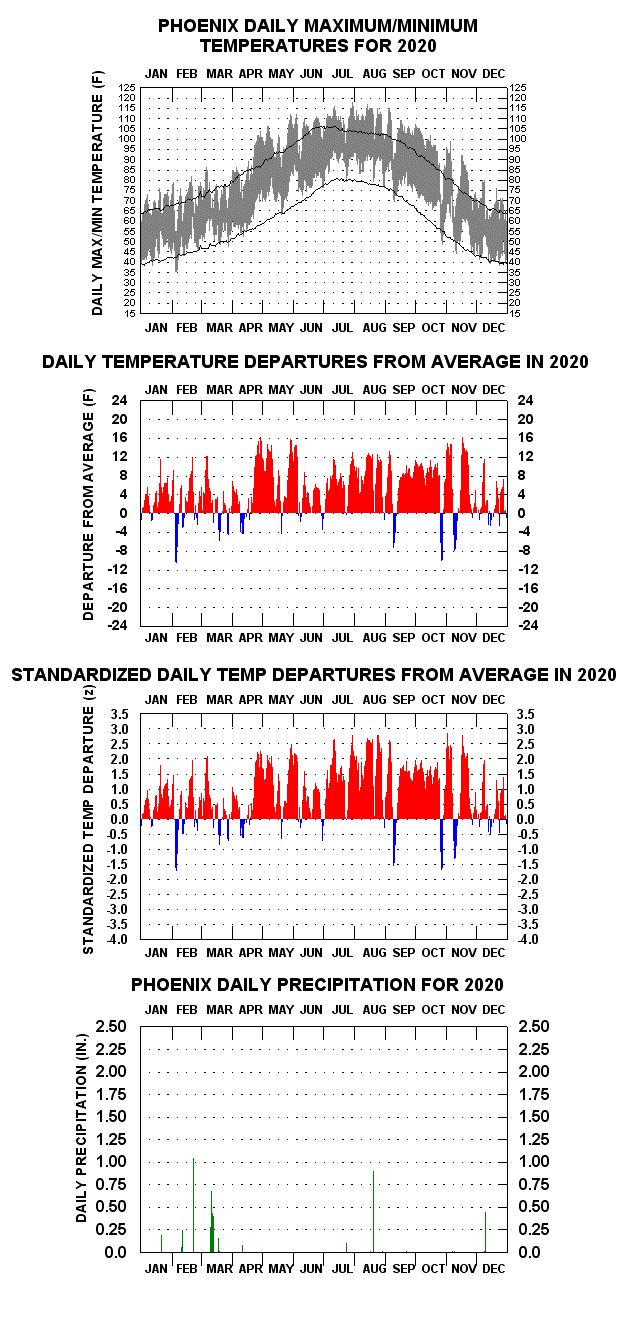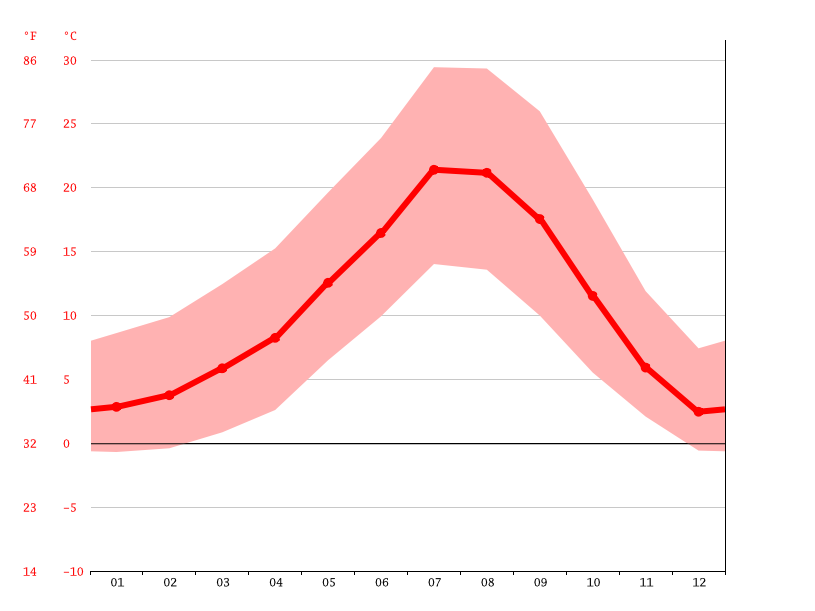
Worldwide, last month was the hottest August ever recorded, according to the World Meteorological Organization. The sweltering summer of 2023 has seen a historic heat wave stretching from Texas across New Mexico and Arizona and into California’s desert. The previous record of 18 straight days was set in 1974.

In July, Phoenix also set a record with a 31-day streak of highs at or above 110 F (43.3 C). The average daily temperature was 102.7 F (39.3 C) in July, National Weather Service meteorologist Matt Salerno said, and the daily average in August was 98.8 F (37.1 C). The daily average temperature of 97 F (36.1 C) in June, July and August passed the previous record of 96.7 F (35.9 C) set three years ago. Rather it was recorded for the 54th day this year.Phoenix experienced the hottest three months since record-keeping began in 1895, including the hottest July and the second-hottest August. The headline and text of this article were amended on 10 September 2023 because an earlier version was incorrect to refer to the 110F temperature being recorded for the 54th consecutive day. In mid-August, Governor Katie Hobbs declared a state of emergency after 30 consecutive days of excessive heat warnings across Coconino, Maricopa and Pinal counties, which would allow the state to reimburse various government entities for expenses used on heat relief. Additionally, 59% of the heat-associated deaths in the county have been among white non-Hispanics, making it the highest number of deaths by race and ethnicity. This year, the majority of heat-associated deaths occurred among people between 50 and 64 years old. In 2022, the county saw 153 heat-associated deaths during the same week last year while another 238 remain under investigation. An additional 351 are under investigation. On Wednesday, officials from Maricopa county, home to Phoenix, reported that there have been 194 confirmed heat-associated deaths this year as of 2 September. It has also fanned wildfires across western parts of the country while heat-related deaths soared. This summer’s heat has led to millions of residents being placed under extreme heat advisories. The previous record was set in 1974 during which the city saw 18 consecutive days of at or above 110F.Īccording to Nasa’s global temperature analysis, June 2023 was the hottest June on record. Moreover, it warned that fans may not be adequate and urged residents who have access to air conditioning to use it.Įarlier this summer, Phoenix grappled with a 31-day streak of temperatures at or above 110F as a blistering and historic heatwave swept across numerous states including Arizona, Texas, New Mexico and California. It also advised against sun exposure from 10am to 6pm and for residents to wear light and loose fitting clothing.


The NWS has warned of high risk of heat stress or illnesses to people or animals and urged residents to stay hydrated. Meanwhile, lows are expected to range between 80F to 86F. From 1991 to 2020, the average days of 110F or above is 21 days, the NWS said.Īn excessive heat warning has been issued for south central and south-west Arizona until 8pm on Sunday as weekend highs are expected to range between 108F and 114F. Saturday’s temperature breaks the previous record of 53 days that was set in 2020.


 0 kommentar(er)
0 kommentar(er)
